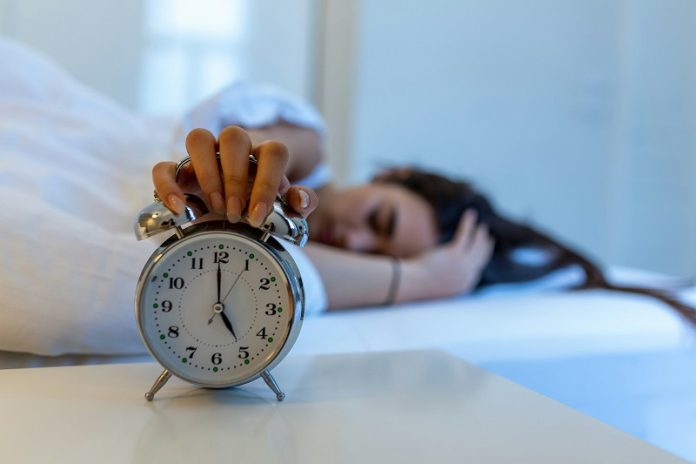
A good night’s sleep is vital for children’s health and development, but it might also play a role in their future choices regarding alcohol and marijuana use.
A new study led by researchers at Penn State has found that teenagers were more likely to have tried alcohol or marijuana by age 15 if they had gone to bed later and slept fewer hours during childhood and adolescence.
The study, published in Annals of Epidemiology, highlights the importance of sleep during childhood and suggests that improving sleep habits could help reduce the likelihood of risky behaviors, such as substance use, in the future.
Anne-Marie Chang, an associate professor of biobehavioral health at Penn State and the study’s senior author, emphasized the potential for early intervention: “The study suggests that there might be some critical ages when sleep can be a target for intervention.
If we improve sleep in the school-age population, not only could that show improvements in sleep health but in other aspects like the decision to engage in risky behaviors like alcohol and other substance use.”
The research team explored the impact of childhood sleep habits at different developmental stages to see if they influenced later substance use. They focused on two key aspects of sleep health: the total duration of sleep and the time of sleep, or bedtime. The researchers explained that going to bed later, especially for school-aged children, could affect their overall sleep quality.
“Sleep is multifaceted. It’s important for children because it helps with growth and development. The brain is more plastic during younger ages, and you want healthy sleep to support neural development,” said David Reichenberger, co-lead author of the study. “Poor sleep health could have downstream effects on their physical health as well as decision-making, which could, in turn, be related to their decision to engage in substance use.”
The study analyzed data from 1,514 children who were part of the Future of Families and Child Well-being Study, a long-term study of children from 20 cities across the United States. Parents reported their child’s regular weekday bedtime at ages three, five, and nine, as well as their sleep duration at ages five and nine.
The researchers found that children with a later bedtime at age nine were 45% more likely to try alcohol by age 15 compared to children with an earlier bedtime. Interestingly, the bedtime at age five did not predict future alcohol use, nor did the total sleep duration at ages five or nine. However, when it came to marijuana use, a later bedtime at age five was linked to a 26% higher chance of trying marijuana by age 15. Additionally, children who slept an hour less at age nine were 19% more likely to try marijuana by age 15.
The study also examined data from the same children at age 15. Teens who reported a later bedtime had a 39% greater chance of drinking alcohol and a 34% greater chance of trying marijuana. Sleeping one hour less was linked to a 28% higher likelihood of trying alcohol, though it wasn’t associated with marijuana use.
Reichenberger noted that sleep during the years closest to adolescence is especially crucial for reducing the risk of substance use. “It’s that stage of development when children are rapidly changing and their brain is maturing,” he said. Previous research has suggested that shorter sleep duration and later bedtimes may increase impulsivity and impair decision-making, which could lead to risky behaviors like substance use.
The findings underscore the importance of good sleep habits for long-term health and well-being. For school-aged children, creating an environment conducive to sleep and setting an appropriate bedtime are key steps in fostering healthy sleep patterns.
“Exploring the connection between sleep and substance use is a critical area of research because we continue to struggle with an epidemic of opioid addiction and substance use,” Chang said. “It’s important to continue researching this topic and sharing our findings with families, healthcare professionals, and the broader population.”
If you care about sleep health, please read studies about foods that help people sleep better, and Keto diet could improve cognitive function in people with sleep loss.
For more health information, please see recent studies about the natural supplements for sound sleep, and how your diet can improve sleep quality.



